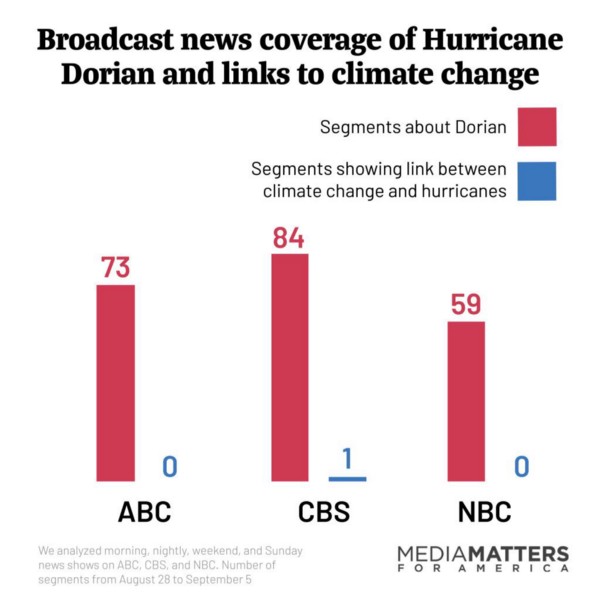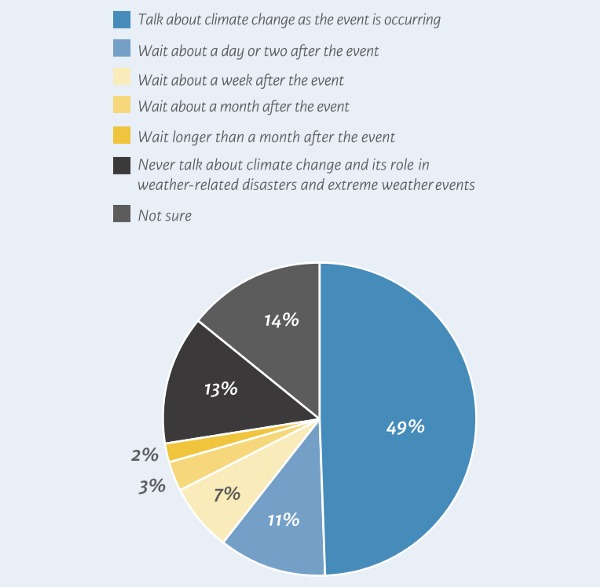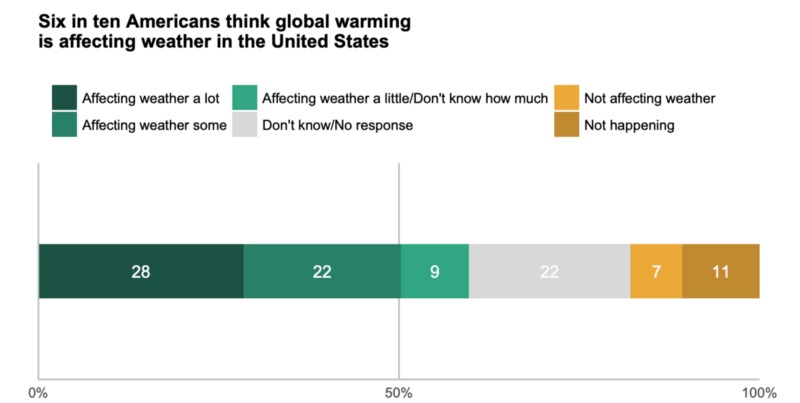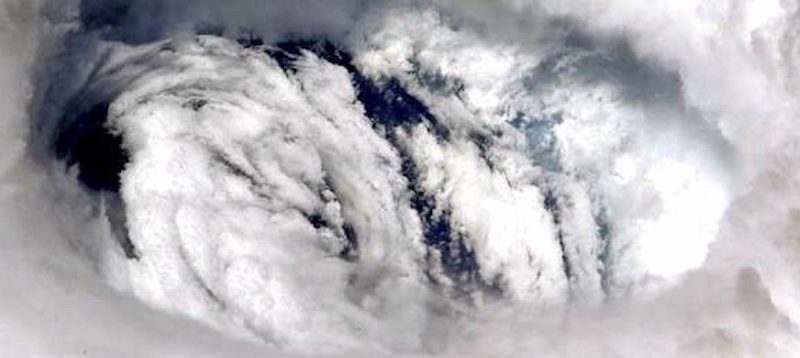Earlier this month Hurricane Dorian made landfall in the Bahamas, delivering winds upwards of 180 miles an hour and widespread flooding, enough destructive force to kill at least 50 people and leave tens of thousands homeless. It was the most powerful hurricane to hit the islands in more than 150 years of record-keeping, and it was made all the more potent and deadly by a century of climate change, scientists say.
But this critical fact — that burning fossil fuels worsened the catastrophe — was virtually absent from U.S. broadcast news coverage of the storm, even though most Americans say it is appropriate for broadcasters to talk about climate change during or right after a storm, according to recent research.

Between August 28 and September 5, when Dorian was hammering the Bahamas, ABC, CBS and NBC aired 216 segments about the storm. Only one discussed climate change, according to an analysis from Media Matters.
This phenomenon is hardly new. Broadcasters similarly neglected to mention climate change in their real-time coverage of Hurricane Florence, Hurricane Irma and Hurricane Harvey — while they scarcely covered Hurricane Maria at all.
While some observers— including many in the Trump administration — have said that reporters should not talk about climate change when disaster strikes, by neglecting to mention the carbon crisis, broadcasters are overlooking a key part of the story — and one that viewers want to hear about, according to a recent national poll from Yale University, George Mason University and Climate Nexus.

The poll found that 49 percent of U.S. voters believe it is appropriate for journalists to talk about climate change as a storm is unfolding, while another 11 percent say reporters should wait a day or two. Just 13 percent say the news media should never talk about the role that climate change plays in extreme weather events. Voters responded almost identically in state-level polls carried out in Texas, Iowa, Michigan, and North Carolina over the last year.
“Most Americans tend to be comfortable with the fact that climate change can affect the weather and think it’s OK if reporters talk about that,” said John Kotcher, a research assistant professor at George Mason University’s Center for Climate Change Communication.
Studies show that six in 10 Americans understand climate change is affecting the weather in the United States, while large numbers say it has played a role in specific events, including five in 10 who say it made hurricanes Florence and Michael worse. The challenge, Kotcher said, is that many Americans — including many journalists — don’t understand how many of their friends and neighbors accept climate science.

“I think among journalists who aren’t covering the connection between extreme weather events and climate change, it’s part of a broader phenomenon of people across America in a variety of different groups systematically underestimating how many Americans actually care about this issue,” he said.
On top of that, Kotcher speculated that many journalists may also erroneously believe that no single weather event can be attributed to climate change. While that may have been true at one time, he said, the science has evolved to the point were researchers can quantify the role that carbon pollution played in specific droughts, floods, heat waves and hurricanes.
“Reporters shouldn’t really shy away from talking about the connection between climate change and extreme weather events like Dorian,” he said. If reporters are worried about negative feedback from viewers, he added, “Our research suggests that really shouldn’t be a barrier here.”
Disclosure: Nexus Media is an independent newswire affiliated with Climate Nexus, a nonprofit working to improve public understanding of climate change. Jeremy Deaton writes for Nexus Media. You can follow him @deaton_jeremy.


